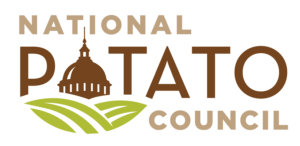Jan 23, 2024NPC calls for urgency in public comments to CFIA potato wart plan
The National Potato Council has submitted public comments to the Canadian Food Inspection Agency’s risk management documents for mitigating the risk of spreading Prince Edward Island potato wart to the U.S.
In December 2023, CFIA announced plans to complete a risk management review within the next year and to draft a replacement for its current risk management plan.
NPC’s comments (.pdf) emphasized the importance of keeping potato wart out of the U.S. and expressed concern with the CFIA timeline.
 “Beyond the domestic costs to growers and the industry, the U.S. would likely immediately lose access to all international fresh potato markets, costing the industry over $225 million directly in annual exports and billions more in indirect impact,” the organization wrote. “We fear under the current policy, it is only a matter of time before potato wart is exported from PEI to the U.S.”
“Beyond the domestic costs to growers and the industry, the U.S. would likely immediately lose access to all international fresh potato markets, costing the industry over $225 million directly in annual exports and billions more in indirect impact,” the organization wrote. “We fear under the current policy, it is only a matter of time before potato wart is exported from PEI to the U.S.”
In August 2023, CFIA completed an investigation into PEI potato wart, finding the disease in four fields in addition to the two 2021 detections that closed the U.S. border and sparked the probe. The agency analyzed nearly 50,000 soil samples from fields associated with recent detections and characterized its findings as “expected in investigations of this scale.”
“The risks associated with the transmission of potato wart from fresh potatoes from PEI remain negligible when appropriate risk mitigation measures are in place and followed,” CFIA said in a statement.
NPC noted that CFIA has been unable to prevent the spread of potato wart within PEI and “beyond the initial temporary prohibition on movement of potatoes to the U.S. and the ongoing prohibition on seed movement, CFIA has taken no steps to mitigate the risk of Potato Wart spread to the U.S.”
CFIA’s current Potato Wart Domestic Long Term Management Plan, which allows for the movement of potato wart between high-risk and lower-risk fields, has repeatedly resulted in disease movement, causing “lower risk fields to be upgraded to the highest level of regulation” after soil sampling, according to NPC.
“This repeated activity makes it clear that the current plan is inadequate in controlling the movement of potato wart and that the disease is moving,” NPC wrote.
NPC agreed with CFIA recommendations that seed potato production in index fields should be prohibited indefinitely but argued the risk management documents fail to consider downstream sources of disease spread. Those sources include processing waste, waste generated by bulk shipments moving into the U.S. and potatoes planted in home gardens.
“Given the timeframes necessary to address the comments on these documents, followed by notice and comment on updates to the long-term management plan, followed by implementation of new mitigation, it will likely be at least three years between the most recent outbreak and action by CFIA to address the risk to the U.S.,” NPC wrote. “This lack of urgency is an ongoing threat to the U.S. industry.
“If the roles were reversed, it is a standard that CFIA would never allow of the U.S. in addressing a phytosanitary threat of this destructive nature. We strongly urge CFIA to take immediate action to mitigate the risks identified by USDA APHIS.”
Read more from NPC CEO Kam Quarles about PEI potato wart and learn what leading U.S. researchers think in the February edition of Spudman magazine, available next month.







